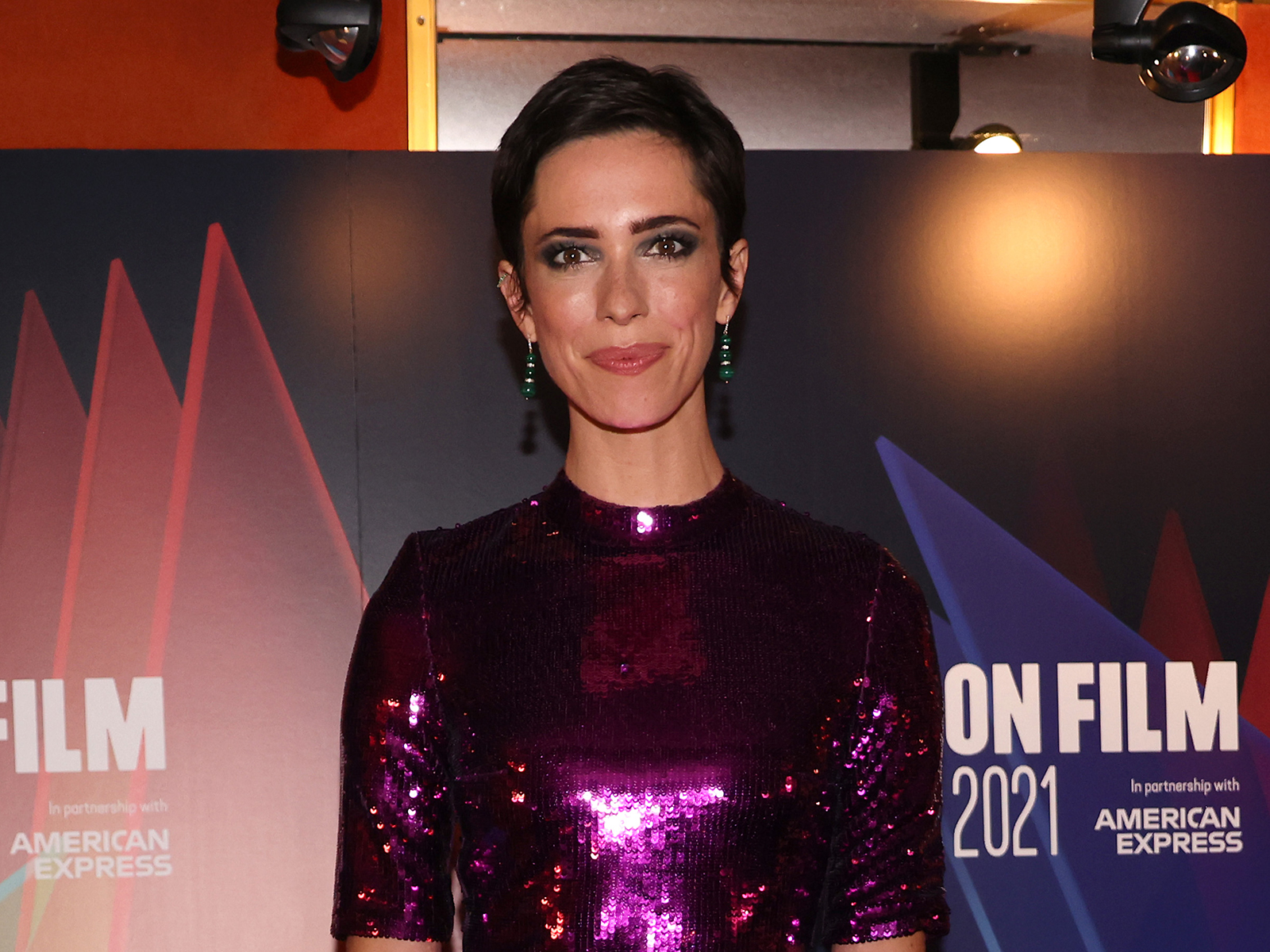
- Interviews
Rebecca Hall Bows with “Passing”
For her feature directorial debut, Rebecca Hall wrote and produced Passing, a black-and-white drama based on the 1929 novel of the same name by Nella Larsen. The title of the book refers to African Americans whose skin was light enough to ‘pass’ as White. For the Golden Globe-nominated actress (Vicky Cristina Barcelona) who is also known for such films as Frost/Nixon (2008), The Town (2010), The Awakening (2011), Iron Man 3 (2013), Christine (2016), and more recently, Godzilla vs. Kong, the subject of “passing,” is much closer to home than you might imagine.
Hall along, with some members of the cast, assembled at the New York Film Festival where the film screened, and she spoke to fans and festival press.
“I must have first read the book about 15 years ago now,” recalled Hall who was born in England to an American mother and English father. “It was at a moment in my life when I was living more of the time in America. My mother was born in Detroit and I felt it was irresponsible on my part not to have a greater understanding of my American heritage.
“It was very confusing to me at the time because there were rumors that my grandfather had ‘passed,’ that he was Black and had passed for White when he married my grandmother. They had four daughters, one of whom was my mother.” She pauses. “So, I wanted to investigate what it meant to me and what it meant to my mother.”
Hall explained that reading the book was life-changing. “I read the book having no sense of what it would do to me and finished it feeling like something had been clarified and illuminated in my own sort of self, really. It’s an astonishing piece of literature.” The material spoke to Hall, so much so that she felt compelled to write the screenplay. “I didn’t really think at the time that I would make it into a film, but then as I started typing away a lot started crystallizing in my head. For example, I immediately had the idea that the film had to be in black and white.”
The director assembled an impressive cast, which includes Tessa Thompson, Ruth Negga, Andre Holland, Bill Camp, Gbenga Akinnagbe, Antoinette Crowe-Legacy, and Alexander Skarsgård.
The premise concerns two mixed-race childhood friends who reunite and become enmeshed in each other’s lives. Irene (Thompson) identifies as African American and is married to a Black doctor (Holland), while Clare (Negga) passes as white and is married to a racist, privileged white man (Skarsgard).
Negga says, “I fell in love with Clare. Actually, I was jealous of her. I was jealous of her abandon and her joie de vivre, and her refusal to be anything but herself, especially for a woman of color at that time.”
Of her casting choices, Hall explained: “I’d been aware of Ruth for a long time. Our paths crossed at various times, and from the moment I saw her in a play in London I started thinking about her for Passing. Then while I was trying to raise the money, Ruth was promoting Loving and I was promoting Christine, and our paths kept crossing. Eventually, I downed a shot and asked her, ‘Will you read a script I’ve written? I want you to be in it.’ Then she read it and said, ‘I love the script and I’ll play any part you want me to play, but you have to let me play Clare,’” she says. “And I’m no fool about actors. If they say, ‘I really want to play a part,’ you’d best believe they’re going to bring something that you might have no idea about.”
But the work had only just begun for Hall. “Then I had to find the right Irene to match her to Clare. I’d seen a lot of Tessa’s work and I thought she had a delicate vulnerability to her. I had a hunch that she was the one.” Evidently, her hunch was on the money. “She completely understood the duality, the complication and the repression of that role.” She smiles. “Tessa got all of it.”
Hall now joins an elite line of established actors who have excelled behind the camera. “When you ask, ‘How does being an actor inform being a writer and director,’ well, I don’t have any other frame of reference, but I will say that I’ve had the most extraordinary schooling to be a director,” she says. “And what I’ve learned having worked with so many directors is that there’s no one way to do this. I found that to be very liberating because it gave me the confidence to say to myself, ‘The only correct way is your way, your instincts, and what your gut is telling you.”

